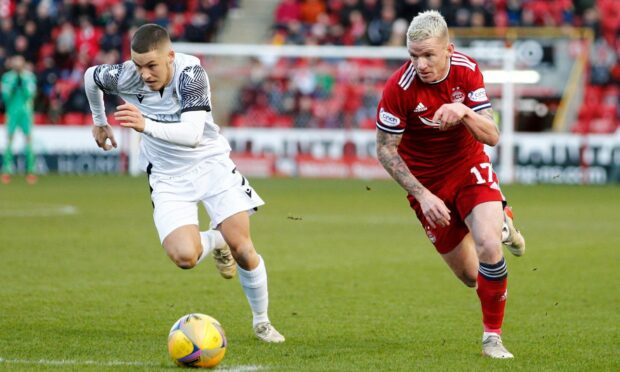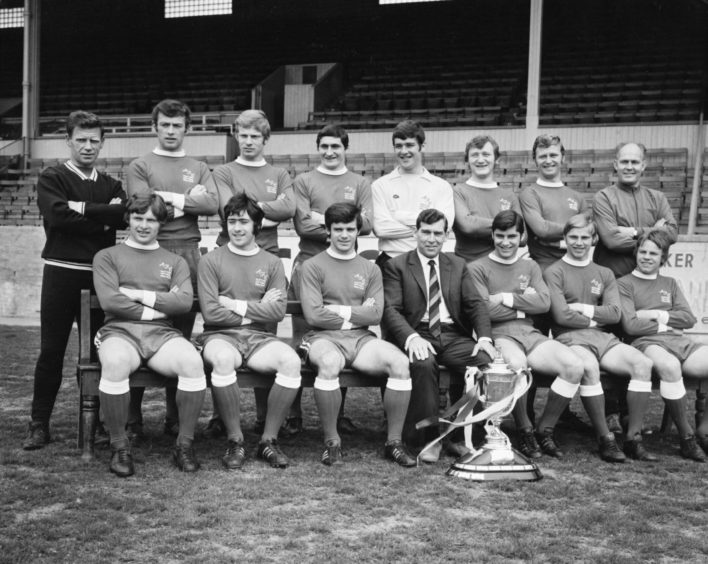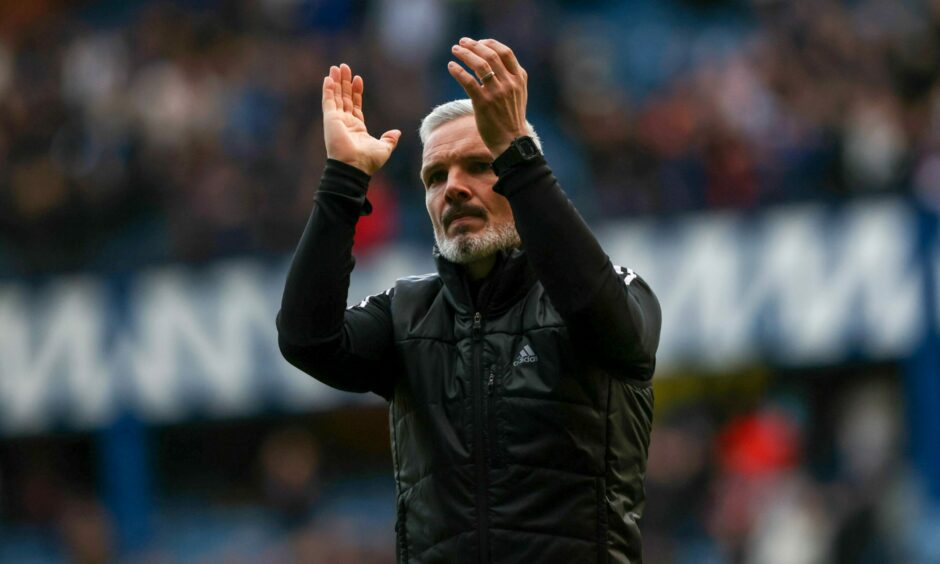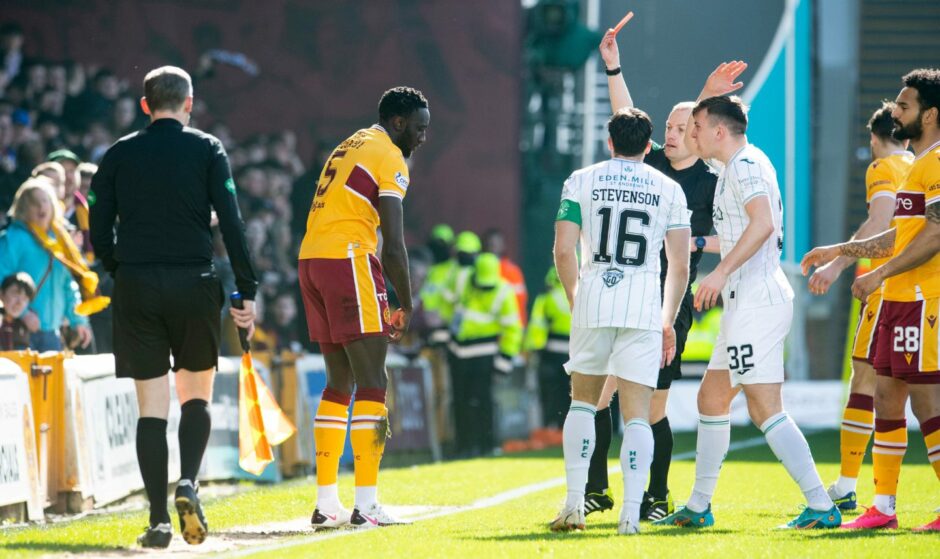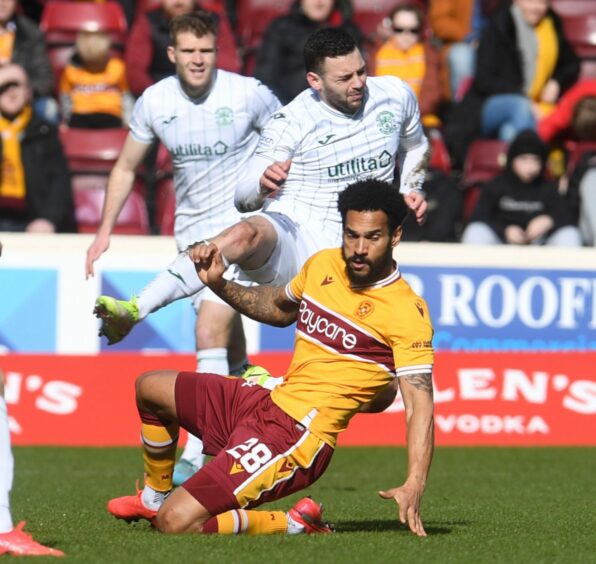New Aberdeen boss Jim Goodwin clearly knows how important long-serving, experienced professionals can be to a dressing room.
On Friday, the Dons confirmed wideman Jonny Hayes, 34 and in his second spell at the club, would be staying on for another year.
Goodwin has previously confirmed career-long Red Andy Considine, also 34, is in talks over a new deal, too.
Of course, as far as any veteran player is concerned – and with regards to those two players specifically – their fitness and ability to contribute on the pitch has to be an important consideration.
Hayes has shown this season, particularly in recent months, he has lost none of his rapid pace and still has the engine to put in a hell of a shift from either a left-sided attacking position or from wing-back.
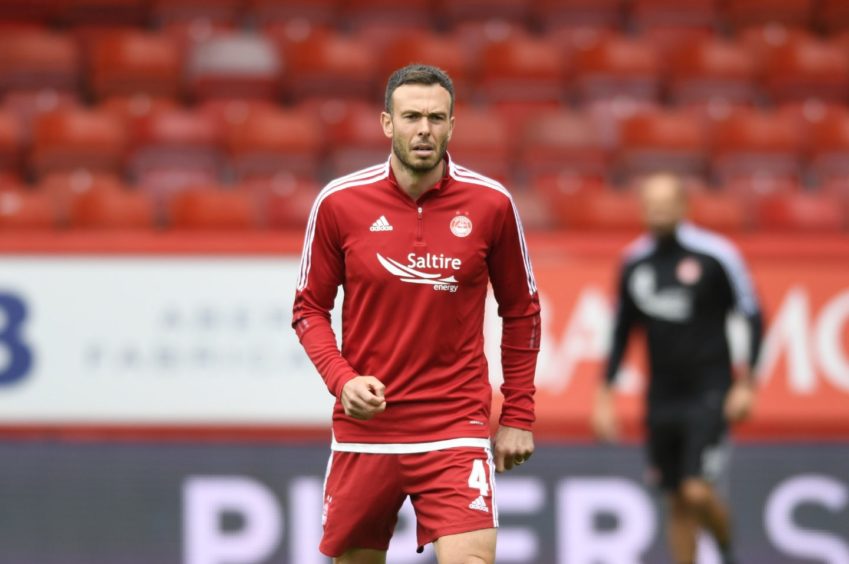
Considine, meanwhile, is yet to make his comeback from a serious knee injury suffered away in Azerbaijan at the start of the campaign but has been renowned for the way he has looked after himself and got better and better over his years at Pittodrie.
Players, with all of the sports science support they now have, are generally better able to take care of their bodies nowadays.
Being in your 30s isn’t as big a factor as it once was in determining whether you can still do the business on the pitch. Not if they put the effort in to prolong their careers, like Considine and Hayes clearly do.
In terms of what these two internationals can offer outside of making sure their own performances are up to scratch, I need only look back to my own time as a player and then manager with Aberdeen.
Pros can teach up-and-coming players what it takes to be at a club like Aberdeen
When I was a youngster, there were members of Eddie Turnbull’s 1970 Scottish Cup-winning team, who almost went on to claim the league title in 1971, still there.
Goalkeeper Bobby Clark was one who had a huge influence from me joining the club all the way through to winning the title in 1980.
Yes, we had disappointments along the way, but he helped build that belief we could break the Old Firm domination of Scottish football, and it was something that was very high on his list.
Joe Harper had his two spells as well. He was there when I arrived initially, left and then came back again. He was another influential figure.
Those two, like Jonny and Andy, were international players who taught up-and-coming players like me what it took to be at a club like Aberdeen.
George Murray was another was part of that cup-winning squad as a senior figure, then became a coach and was a big figure for me and my development when I was a kid.
Hayes, of course, is going to take his first steps into youth coaching as part of his new deal.
Andy and Jonny have been at the club for a long time, and know what is expected in terms of how the team plays and results.
They’ve both experienced big wins, domestically and abroad, were both involved in the League Cup win in 2014 under Derek McInnes, and have also both experienced plenty of disappointment along the way.
As Goodwin tries to shape his squad, with his first transfer window as boss coming up in the summer, it’s important to have players like Considine – who has been at the club as both a boy and a man – to make clear to any incoming players what the standards are.
Crucial to understand what people expect from a Dons player
When I was the manager, I found it was crucial players understood what the club’s hierarchy and fans want to see from a Dons player.
The burden in terms of the league and silverware was perhaps slightly higher back then in the 1990s, but, depending on where signings have arrived from, there is still every chance the expectations at Aberdeen will be higher than they’re used to.
It’s a club that is well run and well supported, which comes with pressure to deliver – and I don’t think a lot of players quite realise this straight away.
These guys, as well as talents coming through the youth academy, have coaches to guide them but they also lean heavily on the most senior professionals around them in the dressing room.
When I became boss, the club still had Jim Bett, Stewart McKimmie and, of course, Alex McLeish on the books. They were all 1989/90 double winners a couple of years before, almost winning the league title in 1991, and had also been my teammates during the club’s golden era earlier in the 1980s. A time when the club’s standards were set.
I think younger, less experienced players are always well aware of the legacy of players like that and willing to listen to advice on how to keep a calm head in certain situations, as well as how to handle the Ibrox, Parkhead and Hampden trips.
Players who have been over the course, like Considine and Hayes, can bring all of these positive influences during Goodwin’s Dons tenure – notwithstanding their contribution with the ball at their feet – and I imagine he’ll want to hold on to them as long as he can.
Dons still have nothing to fear against Hibs
Aberdeen return to action on Saturday when they meet Hibs in the Premiership at Pittodrie.
I’m sure Jim Goodwin would have been an interested observer as Shaun Maloney’s side beat Motherwell in their Scottish Cup quarter-final.
Their January additions, striker Elias Melkerson and winger Sylvester Jasper, both impressed as the Edinburgh side found a bit of attacking quality in the game.
Wolves loanee Jasper, 20, was a real handful down the right-hand side, setting up 19-year-old Norwegian Melkerson for his headed opener with the latter also showing composure beyond his years with an ice-cool finish for Hibs’ second.
However, I wrote in this column last week how Aberdeen must target nine points from their final three pre-Premiership split games to make it into the top six.
Hibs haven’t proved they’ve found any consistency yet and it wasn’t a walk in the park in their 2-1 win over the 10-man Steelmen.
They’ll have taken a confidence boost from reaching the cup semis, but they are still without the likes of Kevin Nisbet, who is injured, while losing key man Martin Boyle in January was a significant blow.
Having had some time on the training pitch with his players, Goodwin will hope his Reds return to action with the required combination of defensive solidity – which they’ve started to find of late – and the attacking threat which was missing in the 1-0 loss at Rangers.
Both sides are still in the early stages of their rebuilds, so it is a game that very much feels up for grabs.
Well’s Roberts could have gone, but I understand why ref Collum reached for yellow
We had three of the Scottish Cup quarter-finals take place over the weekend.
I was at Dens Park for Dundee’s clash with Rangers, but I also saw Motherwell’s meeting with Hibs at Fir Park.
There was a bit of debate afterwards about whether the Steelmen’s Bevis Mugabi deserved the very early straight red card shown to him by referee Willie Collum.
I’ve got to say, I thought it was a clear red card – without even needing to see a replay.
It was a lunging tackle on Josh Doig, over the top of the ball, and the sort of challenge you can’t defend, as it can seriously harm the career of the player on the receiving end.
In this day and age, with players getting sent off for much less – for getting the ball, but going in too forcefully, or making contact on the follow-through – you can’t say that one from Mugabi was anything other than an ordering off.
What is more of a discussion point is Collum only booking Jordan Roberts for an only slightly less aggressive challenge soon after.
In what was a fast and furious opening, Hibs striker Elias Melkerson was perhaps also fortunate to only see yellow for a flailing arm.
I can understand why the referee has made that decision over Roberts’ tackle, although I lean towards the view it should have seen him dismissed.
Yes, you want consistency in applying the rules, but the official is probably also thinking about all of the people who have paid their money to watch a big game in Scotland’s premier cup competition, and how he doesn’t want the game to be over within the first 10 minutes with one team down to nine men.
Now, I know some people will say that shouldn’t come into it, but the referee has used his judgment in that moment to give Roberts another chance.
Instead of the tie being destroyed, it turned into a decent game.
